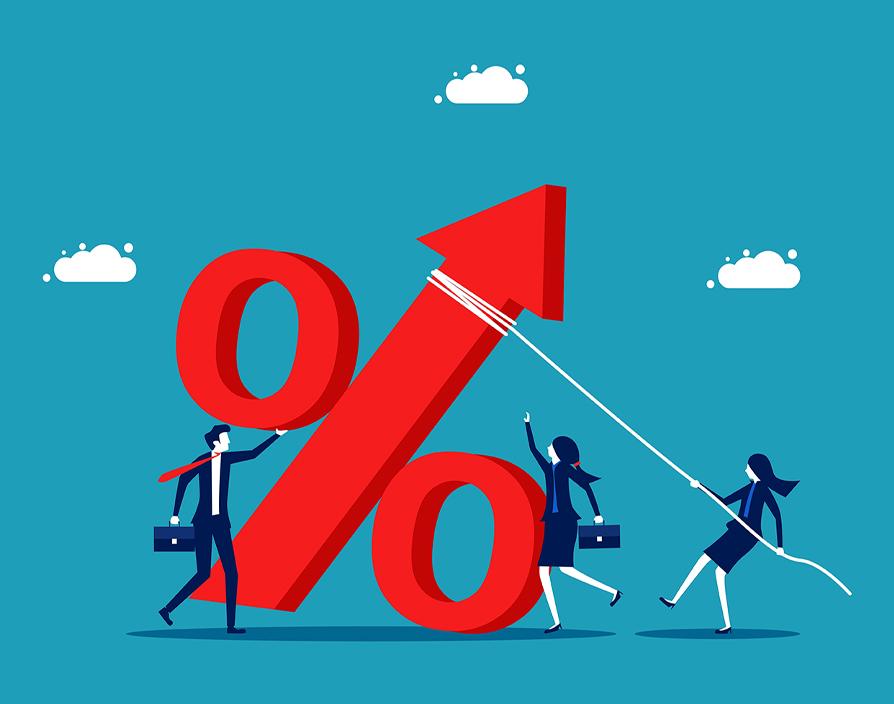The Bank of England has raised its interest rates for the 14th consecutive time. The base rate has risen from 5% to 5.25% as the Bank of England warns the cost of borrowing will remain high for at least the next two years. Until UK inflation is brought under control, interest rates are expected to be kept higher and remain high. Despite the gloomy forecast, the UK’s central bank said it expects inflation to fall below 5% in the autumn or winter.
Federation of Small Businesses (FSB) National Chair Martin McTague has cited the interest rates rise as a ‘huge factor’ in the downfall of small business confidence. Confidence in small businesses has slumped in the second quarter following rising interest rates. McTague added: “With concerns about a recession triggered by high interest rates growing, today’s base rate decision adds to the dripfeed of economic bad news that small businesses have weathered since the cost of doing business crisis got its grips into the UK. Our latest barometer of small business confidence found it stalled significantly between the first and second quarters of the year, with interest rate rises undoubtedly a huge factor behind the fall.”
Small businesses are struggling to keep up with rising bills amid falling sales, McTague said, disagreeing with the Prime Minister’s statement that businesses are ‘booming’ – saying they are facing a tough situation. “Low-cost finance for small firms has almost entirely disappeared, according to our research, a trend which this latest base rate rise will exacerbate,” he said. “That’s highly unhelpful news for productivity and for growth. Yesterday, the Prime Minister claimed that small businesses are ‘booming’ – but we’d class what he said as more of an aspiration at this point, unfortunately. The latest figures for business closures and insolvencies underline the scale of the challenges facing small firms, as even beloved and well-established local firms can’t keep up with rising bills amid falling sales.
McTague highlighted the fall of the high street as he urges the government to step up and help small businesses rebound from tough economic conditions. “Consumer footfall levels stumbled in July, with downpours and transport woes certainly not helping. It’s especially concerning that high streets – where independent businesses tend to cluster – saw more of a hit than out-of-town shopping centres and retail parks, whose high rents make them out of reach for the vast majority of small firms.”
Speaking about how the US government is dealing with inflation, McTague said: “Looking across the Atlantic, the US Government seems to have inflation on the run, as politicians there have recognised that a growth agenda as well as inflation suppression is needed to curb rising prices. The numbers tell the story, with US inflation at 2.97%, and annualised GDP for Q2 2023 rising strongly to 2.4%; UK inflation is still at 7.9%, while our GDP fell by 0.4% in the 12 months to May, with the Bank of England today downgrading its medium-term growth predictions. There are lessons there for the UK, for politicians who are really serious about helping our 5.5 million small firms and self-employed people.”
He added: “If small firms are to boom, as we want them to, the Government could do a lot to help create the conditions for them to rebound. We want to see a comprehensive menu for small business growth and recovery on the table – from clamping down on late payment to extending business rates relief, to increasing the VAT threshold. The risks of stagnation and low productivity far outweigh the estimated costs of sensible policies to help small firms.”
Commenting on how the Bank of England’s base rate rise will affect consumers and small businesses, Kevin Pratt, money expert at Forbes Advisor, said “It says a lot about the state of the nation’s finances when we’re grateful for a 0.25 percentage point Bank Rate increase rather than the 0.5pp rise so many had feared. But make no mistake, the latest hike to 5.25% is still bad news – even if it has already been priced-in by many mortgage lenders. Businesses across the land will face higher borrowing costs at precisely the same time that consumers are easing back on discretionary spending because of the enduring cost of living crisis. Problems remain in snagged supply chains, high input costs and understandably increased wage demands. Many small business owners are battling to survive and, unfortunately, it is a battle that some will lose.
“The 13 consecutive Bank Rate hikes that preceded today’s announcement are clearly already biting. More and more fixed-rate mortgages are coming up for renewal with each day that passes, meaning more households are falling off the precipice amidst average rates of 6.85% (for a two-year fix). Subsequent rising landlord costs and less choice of available rental properties have also resulted in rents rocketing to the point of unaffordability. This means less money going through the tills of struggling businesses. The Bank of England has been criticised for its ‘too little, too late’ deployment of Bank Rate increases in the battle against surging inflation. It is to be hoped it doesn’t adopt a ‘too much, too long’ policy in response. Today’s increase should be the last and the Bank Rate should start coming down before the year-end. Any alternative would likely make a damaging recession inevitable.”
Share via:








































